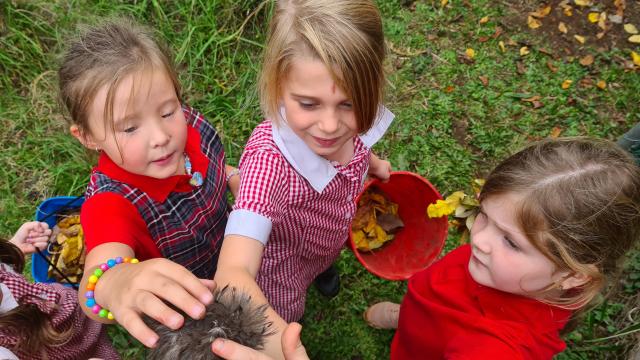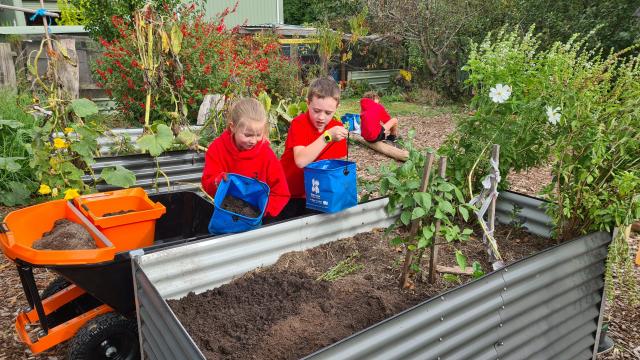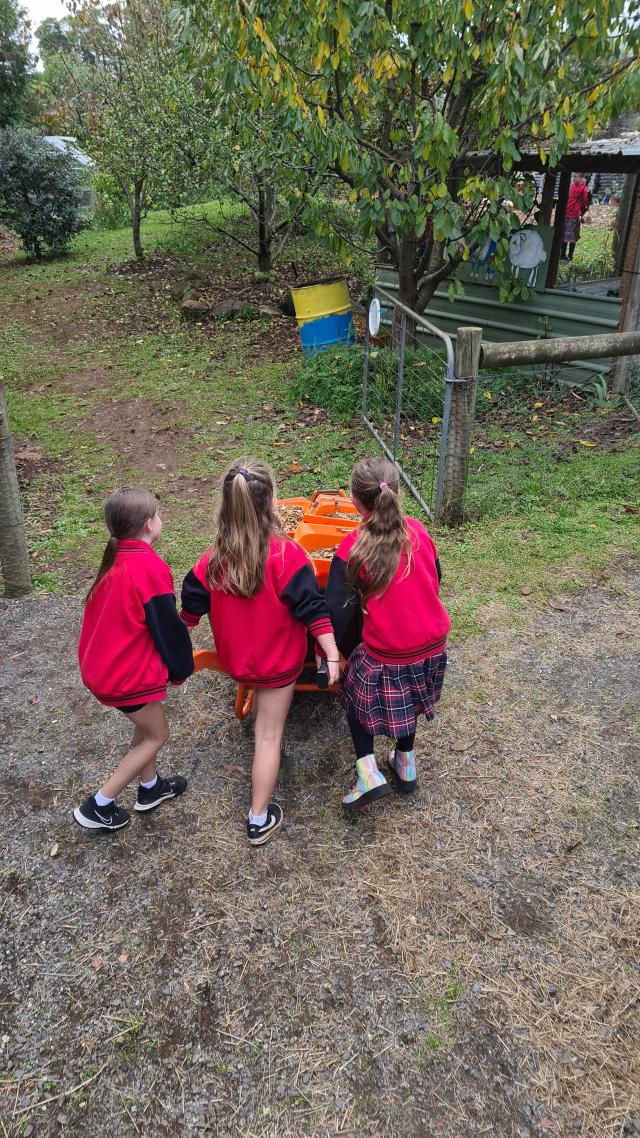
By Callum Ludwig
Wandin Yallock Primary School students are getting hands-on with their learning, getting stuck into the school’s Farm Program.
The students at the school each regularly update Nature Journals, which they work on all the way until they graduate, filling it with observations, knowledge and recordings about the natural world.
School Garden Specialist and Environment Educator Jillian Dowling, affectionately known as Farmer Jill, said she is the third farmer at the school since they established the program 14 years ago.
“There’s a number of quite established apple and other fruit trees, and we have productive gardens, a greenhouse and changes have been made to some of the layouts just to make it a little bit more productive,” she said.
“The kids run a lot of sustainability, horticulture and permaculture techniques, with worm farms, composting and teaching them about minimising food waste.”
The school has incorporated teaching about the seasons of the Eastern Kulin Seasonal Calendar, as well as traditional seasons with a focus recently on the current Waring-Wombat season.
Ms Dowling said the students have focused on making observations about what can be noticed that represents this season.
“We talked about the wombats coming out of their burrows to forage on warmer days, in the sunshine. We talked about what it’s like early in the morning, so it’s been very misty, and that it’s quite a wet season,” she said.
“Last week the kids were drawing things that they were noticing around them, so they were drawing coloured leaves to represent autumn, as well as pumpkins or toadstools and mushrooms.”
In recognition of National Reconciliation Week, a number of Indigenous studies and activities are incorporated into the Wandin Yallock Primary School Farm Program such as learning Indigenous animal and plant names, learning traditional plant uses and choosing local Australian plants to grow.
Ms Dowling said it’s quite rewarding to see the students think about these things, and great to see the kids get excited.
“Sometimes if we finished an activity on the farm, they’ll ask to get the scissors out, and they just trim grass that’s growing under a tree or along the fence line, and I never would have thought telling kids they can go trim grass is what they’d excited about,” she said.
“Sometimes they go really quiet, and I think ‘oh my gosh, what’s going on? They’re too quiet.’ Or they’re so loud, because they’re so excited, like ‘I found a butchy boy, or look I’ve got a worm and then they hold it for the rest of the class. They are so funny and it is so rewarding for me watching their excitement.”
Another activity the students have recently done was to watch a video about the amount of soil on Earth if it were represented by an apple, which ends up being only a small strip of apple skin, teaching kids about how important sustainable food production is.
Ms Dowling said it is important for kids to understand these ideas as they are the future.
“The earlier you can get them to understand the connections in nature and how reliant we are on all creatures, even the tiny ones, the better,” she said.
“They’re also going to be role models and they can be role models to their parents as well, teaching them about creating less rubbish, nude food and other changes that they can make in their everyday lives to reduce the impact on our environment.”
Farm sessions are run on Fridays each week, while kids can also access the farm of their own accord at playtimes.








